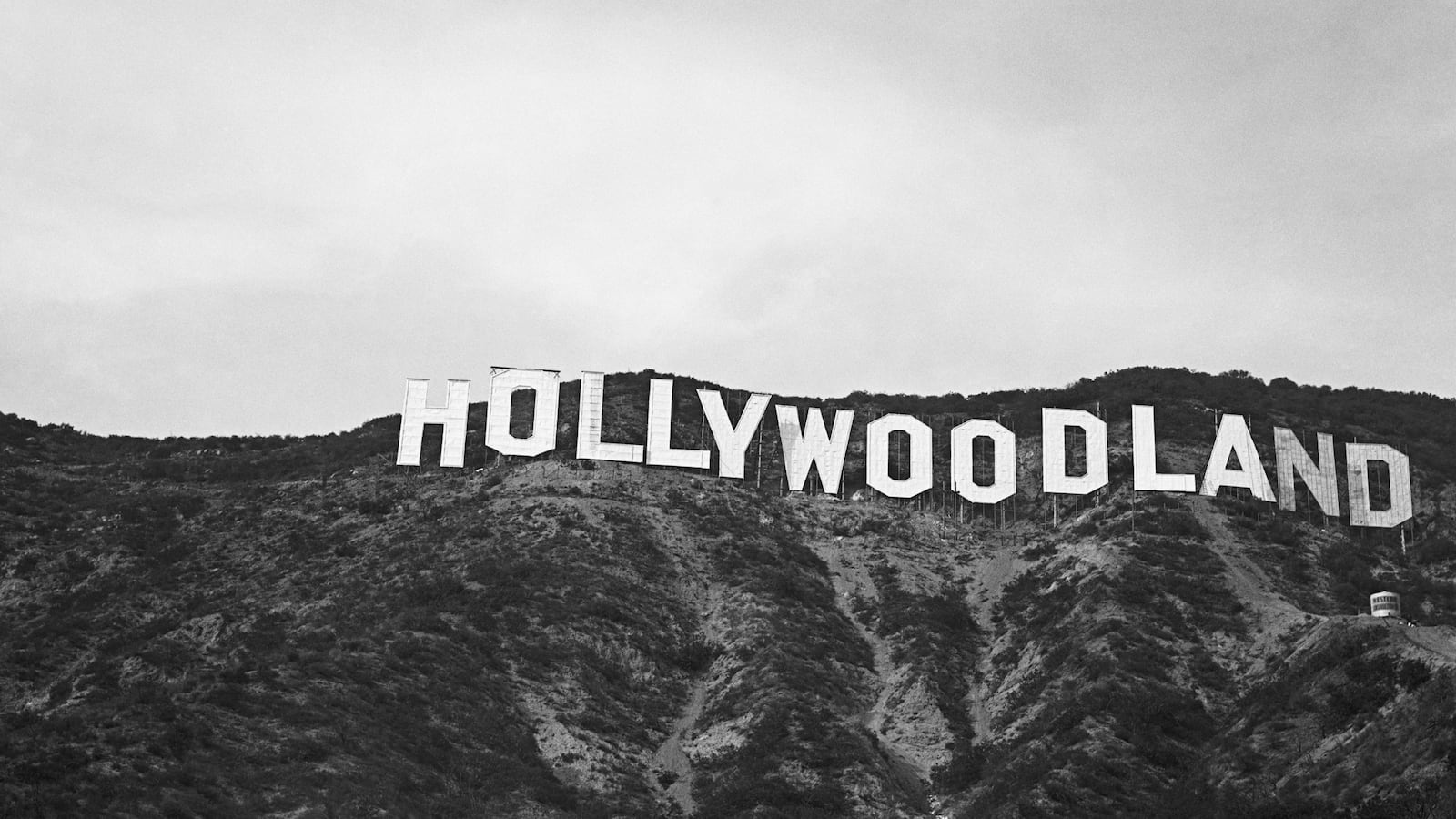Karina Longworth’s hit podcast You Must Remember This explores the secret histories of Hollywood, debunking myths and shedding necessary light on the gifted but overshadowed people who make the dream factory what it is.
Some seasons focus on the women who made vital contributions to the industry. There’s a whole litany of the stories of dead blondes, once worshipped and now forgotten. Recently, we met the writer Polly Platt and actress Jean Seberg, who were constantly overshadowed by circumstance and vainglorious men.
Longworth's new season “Gossip Girls” focuses on Louella Parsons and Hedda Hopper, who wrote influentially dishy gossip columns giving different actors and films the hype that their studios needed. It was about promotion, shaping public opinion, and making their way in the boys’ club of Hollywood by wielding the power of the pen.
These days, social media and the paparazzi industrial complex can thrust instantaneous and extensively detailed updates on the private lives of the rich and famous in our faces all day, every day.
We’re much more cynical about how the cinematic sausage gets made these days than we were even 50 years ago. Maybe it’s because we’ve already been offered countless backstage glances in the form of celebrity tell-all books, documentaries, and salacious accounts of decadent Tinseltown. Longworth, a veteran film critic, spent an entire—and entirely entertaining and informative—season getting to the real scoop of the tabloid book Hollywood Babylon, which fed so many of the rumors about formerly big stars that eventually became mythologies.
Parsons and Hopper aren’t necessarily saints or even icons—at some basic level, they were paid propagandists for extremely rich, powerful studio heads who had a vested interest in getting their money back on their various investments. Since movie stars were more easily mythologized in the prewar years, and movies still packed an exotic punch, cultivating their public image was necessary.
So even though in some ways Parsons and Hopper were serving Hollywood Mammon, we shouldn’t be so quick to judge. Everyone’s gotta serve somebody. Longworth shows us their personal faults, and the system of power and money and social influence that set their whole scene. And she is showing us a couple of feisty, ambitious, streetwise women who knew what they wanted and how to get it. There’s deliciously all-too-human cattiness and feuds. I loved hearing how some columns were all about trash talking, ticking off who was fat, who had no talent, who was a snob that week. That delightful mean girl vibe is probably the natural result of having a widely read column, an axe to grind, a few martinis, and a name to make for yourself. And needing to keep people coming back for more.
Longworth and I emailed and talked about the new season, why she wrote it, and what surprised her the most.
What inspired you to make this new season?
Not knowing when the pandemic would end or when things would start to reopen, I needed to find a topic that I could research at home, using only resources such as books that I could buy, and online materials that I could easily access. And, since the last season of the podcast was about Polly Platt and mostly dealt with Hollywood in the 1960s-90s, I had gotten some feedback from some of my core listeners that they wanted a return to the classical Hollywood era.
So within those parameters, I came up with a few ideas, and I ended up focusing on Louella and Hedda because their stories seemed to have the most relevance to a few things that were going on in the world last fall when I started researching. Also — and this is somewhat embarrassing to say — but even with all of my knowledge and research, I had a tendency to confuse Louella and Hedda for one another. I thought it would be for my own good to get to know each of them individually.
When you talk about people choosing what they want to take in as news, you say “the bias isn’t new—what’s new is the transparency with which we discuss the bias and division." Could you say more about that?
A large subject of the season is men like William Randolph Hearst, and Harrison Otis and the Chandlers of the LA Times, and Henry Luce of Time, Inc., who developed media empires around their own personal, economic, and political interests. They all took advantage of the fact that people wanted to believe that if they read something in a newspaper, it must be true.
These men put out mainstream publications that were incredibly biased in their reporting—Hearst’s papers were fully pro-union until his personal politics changed, and then the papers all changed, too; for a long time The Los Angeles Times was an organ of the Republican Party—but most readers accepted the illusion that they were neutral observers of current events. This isn’t ancient history; in my lifetime, there was once a general assumption that the news was just the news, and people thought they could trust it to tell the truth and not be serving a specific person or corporation’s interests. Now, with many publications, there’s no illusion of neutrality, and with others, there’s a constant conversation among readers about the ways bias slips in.
“The Gossip Girls reinforced a system that relied on an audience who had no idea how movies were really made,” you say. How conscious were Parsons and Hopper about manufacturing consent in their readers? Did they think of it as a kind of duty or just business as usual? If the average reader didn’t have any idea about how the movies were made, maybe that allowed Parsons and Hopper to give them a readymade idea of it that then became the accepted version.
Parsons and Hopper actively obscured how movies were really made, because the studios wanted them to. The studios believed that people wouldn’t go to the movies unless they were able to suspend their disbelief. I'm not talking about stories about celebrities and their personal lives—I'm talking about things like the use of stuntmen, voice dubbing, rear projection, etc.—or the business dealings that made movies possible, which the studios really didn't want revealed (and still don't!).
Louella and Hedda both largely supported the illusions that the studios wanted to sell, at least until around the 1950s. Some gossip columnists contemporary to Hedda and Louella (such as Sidney Skolsky) did try to reveal certain things, real behind-the-scenes information about filmmaking, and their columns were less popular with the people in power in Hollywood. And being less popular with the people in power in Hollywood was a bad career move—you’ve probably never heard of Sidney Skolsky, but you might have heard of Louella or Hedda.
Can you describe the extent of the power that Parsons and Hopper possessed?
Basically, Louella Parsons was extremely powerful up until the late 1930s because she was the only gossip columnist who was anything like as powerful as she was. So studios needed her to help promote their new stars, and their old stars, and they relied on these sorts of deals they made with her to filter the presentation of the stars’ personal lives. And she did everything she could to promote the industry in the way that they wanted it promoted, and in a way that would protect it from government censorship.
As she started getting drunk on her own power—and I talk about this in some of the later episodes of the season—and studios started getting dissatisfied with the extent to which she was doing their bidding, and so we don’t know exactly who was behind it, but Louella definitely believed that she was conspired against, to have Hedda Hopper installed at the The Los Angeles Times and as a syndicated columnist to challenge her supremacy.
And the thing about Hedda Hopper is that she was kind of expected to do the bidding of the studios, but in practice she didn’t. She did the bidding of Hedda Hopper. And that made Louella even more powerful, even if she felt that she was being undercut, because now it created this sort of hegemony where if the studios wanted a story out, they had to pick one of these columnists to give it to. They had to decide which one of them would treat their interests in the way that they wanted them to be treated. And so this power structure continued really into the 1950s, to the point where the whole industry wanted to change.
Can you say more about Hedda Hopper’s right-wing politics? She worked pretty vigorously for HUAC. How far to the right do you think she was?
I talk about this a little more in this season’s future episodes, but she was very, very far right wing. She was a member of a group called The Motion Picture Alliance For The Preservation Of American Ideals, which was her and John Wayne and a few other people who were known to be extremely right wing in Hollywood. And they did unite to do whatever they could to support the House Un-American Activities Committee, and to support some other forces who were working to oust some supposed Communists, not just in Hollywood but in America.
In an episode that came out recently, I talk about how she worked with J. Edgar Hoover to essentially deport Charlie Chaplin. Ultimately, it was Chaplin’s decision to leave, but only after Hopper and Hoover had been going after him for over a decade.
What surprised you the most when you were researching the season?
I hadn’t known much about Harriet Parsons, Louella‘s daughter. She was a female film producer at a time when there were virtually no women in those positions of power at the studios. She was also a closeted gay woman. And a couple of the movies she produced were really terrific. I was particularly blown away by a film called Night Song, which I talk about in episode five of the season.
Is the kind of writing Parsons and Hopper did around today? Do you see any parallels?
In the last episode of the season I talk about basically everything that happened in gossip between when Louella and Hedda stopped working in the mid-60s, and today. The big difference is that there aren’t major personalities delivering gossip the way there were back then. If anything, the juiciest gossip is a product of anonymity—think of the “anon please” tipsters to Deux Moi, or blind items.
But in terms of doing the bidding of the studios, the way Louella did, and cheerleading for corporate content—that’s pretty much the entire mainstream movie press, particular when it comes to “reporters” who revel in junkets and swag, and those who devote slavish attention to brands like Marvel. And in terms of using coverage of movies and celebrities to spark outrage to forward a political agenda, the way Hedda did? That seems pretty common today, too.







